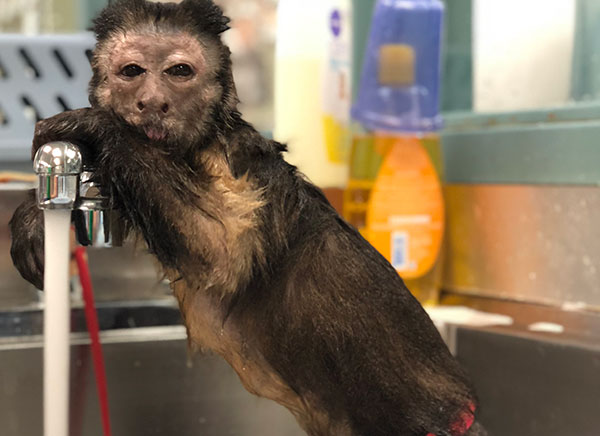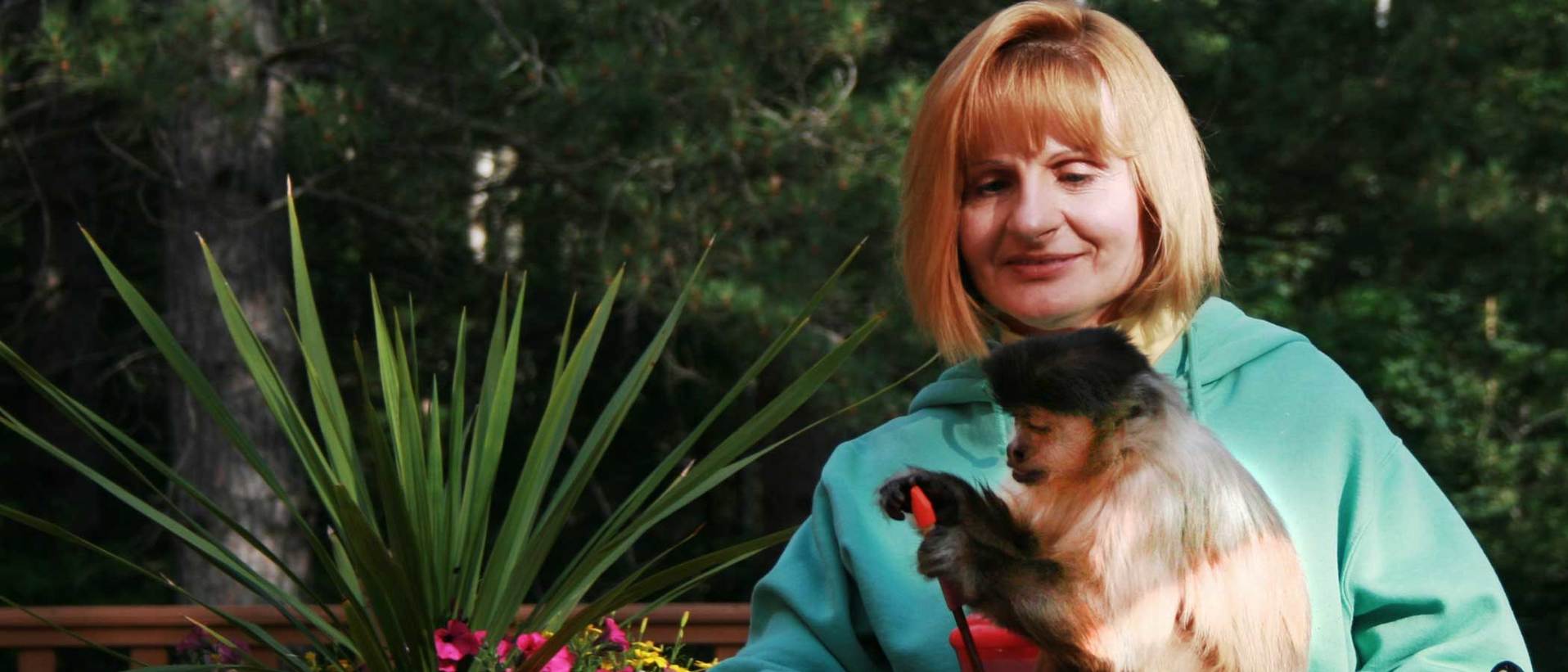

Monkey Helpers: Our Past Mission
Helping Hands: Monkey Helpers for the Disabled, Inc. was founded to raise and train capuchin monkeys to provide daily in-home assistance to people living with mobility impairments.
Since 1979, Helping Hands has supported service monkeys and their human partners with interactive mentoring and close supervision of each monkey’s behavioral, nutritional, and veterinary needs. The organization has provided these uniquely trained animals free of charge to our recipients with the help of private donations. Helping Hands: Monkey Helpers is a national nonprofit 501(c)3 organization.
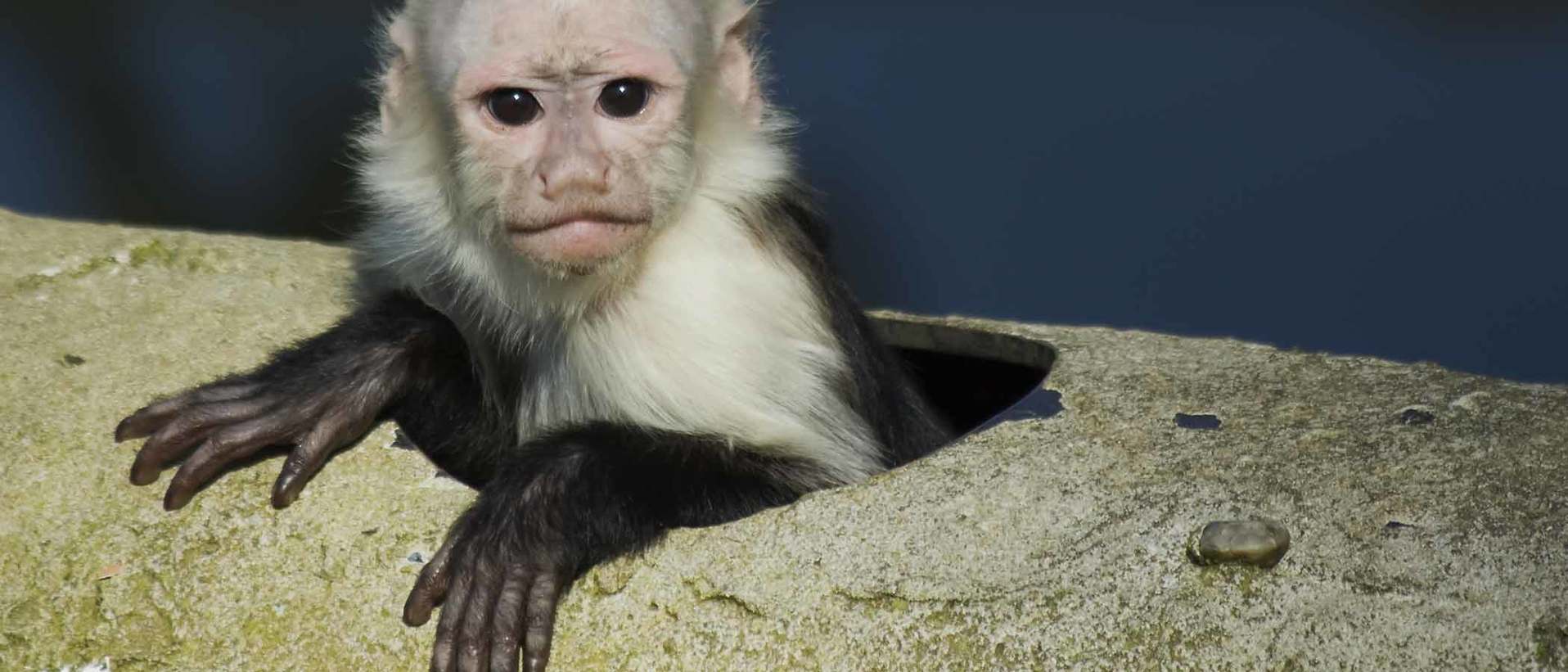

Monkeys?
Monkeys?
Why Capuchin Monkeys
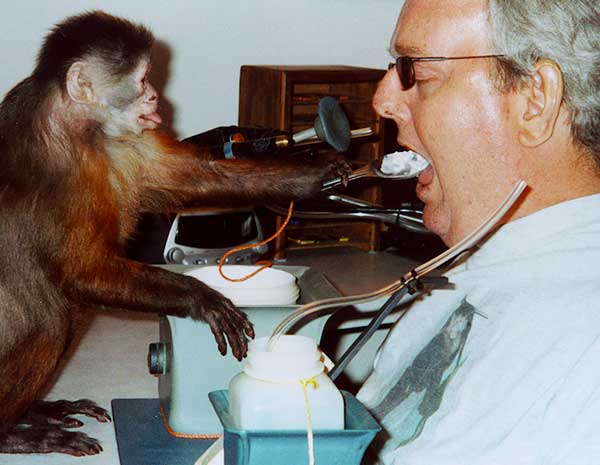
Those learning about Monkey Helpers’ past mission often ask why we decided to choose capuchin monkeys as helpers. When looking at the service animals in use in the 1970s, the most obvious advantage to our choice of capuchin monkeys was their dexterous hands and amazing fine motor skills.
Capuchins perform tasks such as:
• turning pages
• flipping a light switch
• retrieving dropped objects
• inserting straws into bottles
• turning on buttons/switches for remotes, phones, computers, etc.,
• repositioning limbs on a wheelchair
• scratching itches
Other differences between capuchins and other service animals include:
• their long life span of 30-40 years;
• their small size, enabling them to cuddle in their human partner’s lap or nape of their neck;
• their hair, like humans’, which helps to alleviate problems with fur-related allergies; and
• a monkey’s strong sense of hierarchy which provides the motivation to care for and be cared for by their human partner. Helping Hands trainers and placement staff utilized this natural hierarchy to create a mutually beneficial and nurturing relationship between the monkey and the recipient.
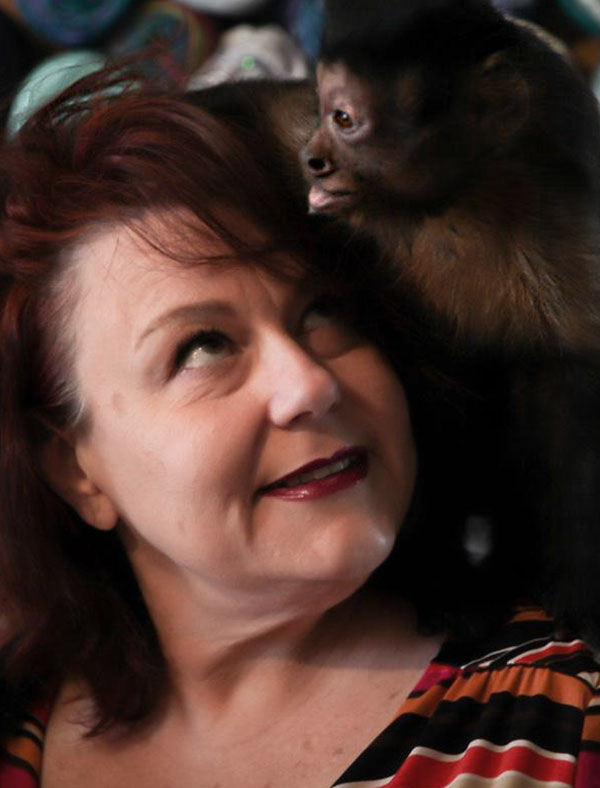
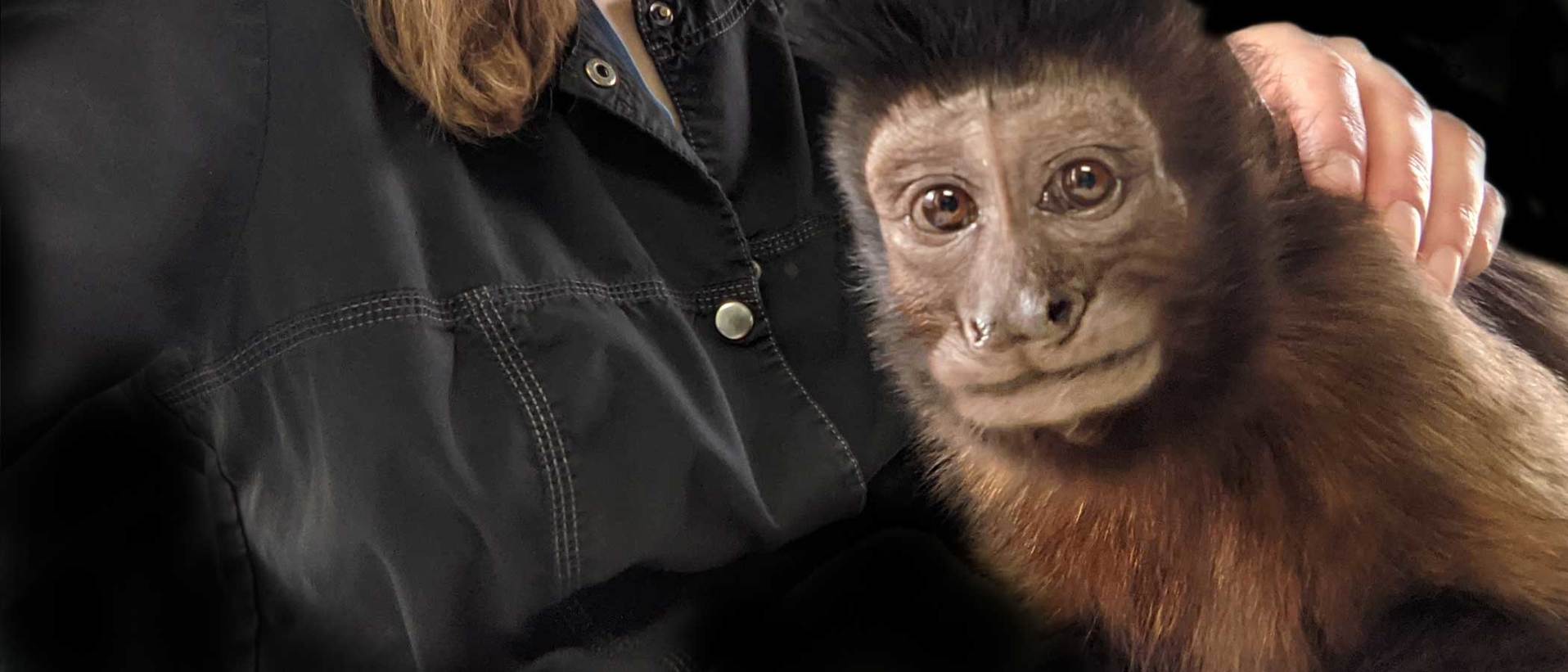

Special Care Homes
Special Care Homes
Socialization & Special Care Homes
Helping Hands’ monkeys needed to mature before they attended The Monkey College. For the early years of their lives, they were raised in loving homes where they learned to socialize with humans in a home environment. Families who raised and socialized our monkeys were volunteers who committed themselves to the demanding but rewarding job of preparing these young monkeys for training and service.
When our monkeys “retired,” some were placed in loving, supportive homes where they could receive special care and close medical supervision after their lifetimes of giving service. Because we maintain ownership of our monkeys throughout their lives, we continue to oversee their care and medical needs as long as they live.
Special Care Homes
Special Care Homes were for monkeys who needed more round-the-clock care than we could provide at our Boston facility. Now, with the new modifications and the creation of the Monkey Living Center, Helping Hands is better equipped to provide all our post-service monkeys with the love and care that they so rightly deserve.
“Helping Hands combined my love of animals with my desire to be a part of an organization whose mission was worthy and whose work fulfilled the mandate to make the world a better place.”
— Judi Hindman, Foster Parent to Katie
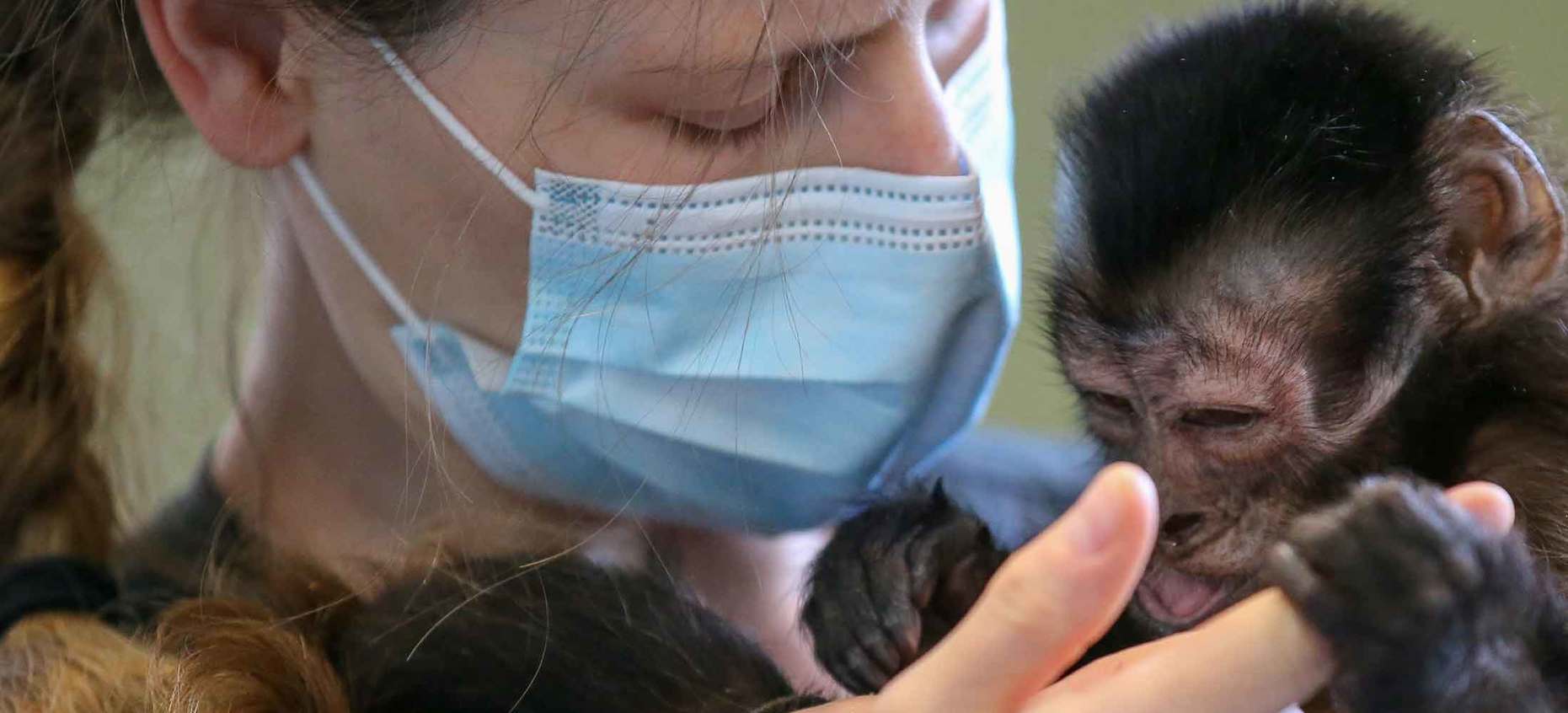

The Monkey College
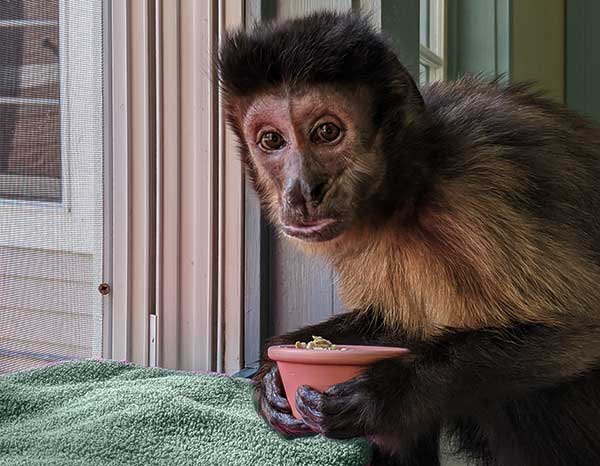
The Thomas and Agnes Carvel Foundation Center, or “The Monkey College”
Our training center was a highly unique, carefully designed, comprehensive facility where our monkeys lived and learned.
Affectionately known as The Monkey College, the center included:
• Monkey dorm rooms
• Play and recreational areas
• Bathing areas
• A veterinary center
• A kitchen for preparing monkey meals
• Administrative and Placement offices
• A workshop for designing and fabricating adaptive equipment
• A respite care facility
• Innovative classrooms that vary in size and complexity, equipped with closed-circuit TV and one-way glass to facilitate observation
The Center reflected the work and the spirit of Helping Hands. Here, we prepared our monkeys to be helpful, empowering, and loving companions for individuals living with physical disabilities.
